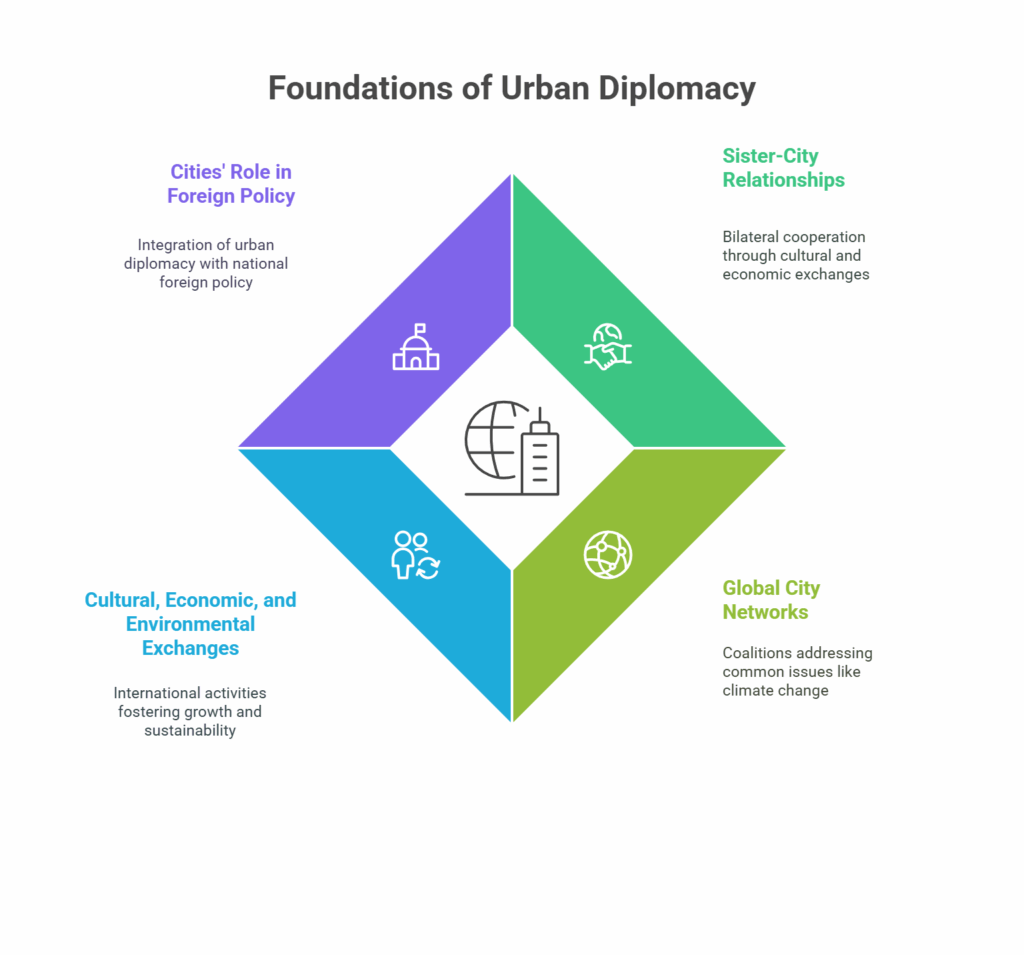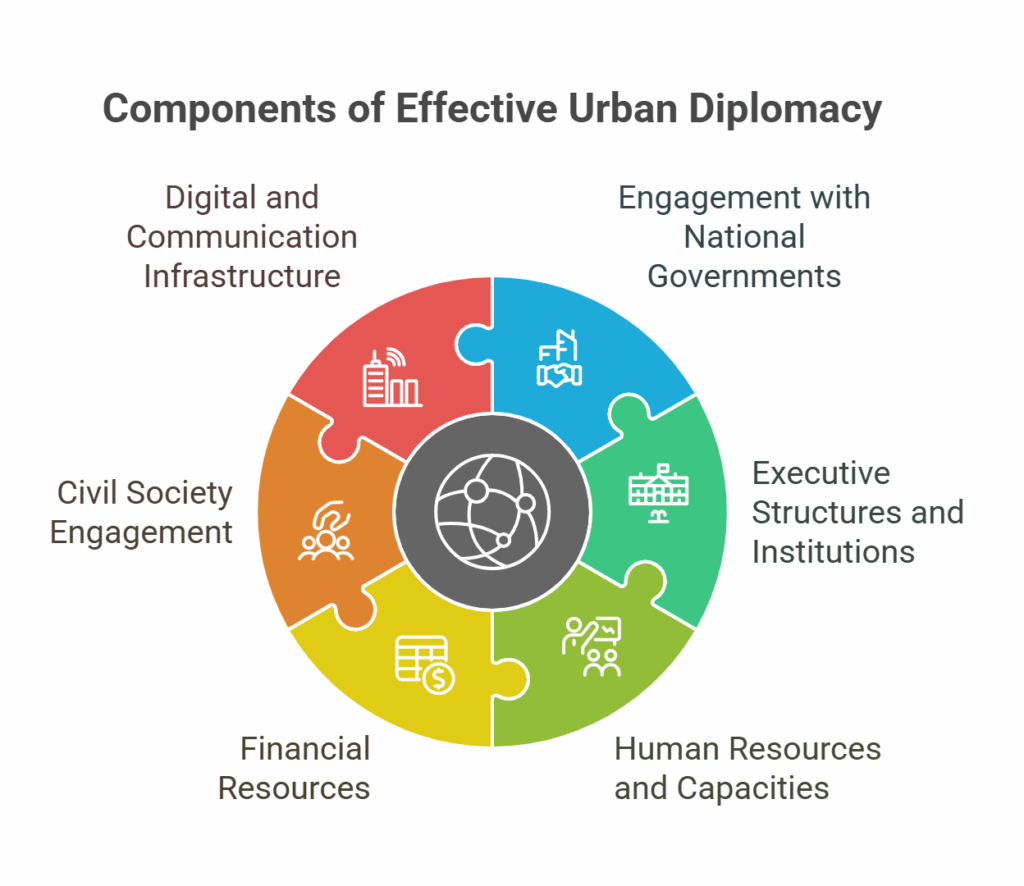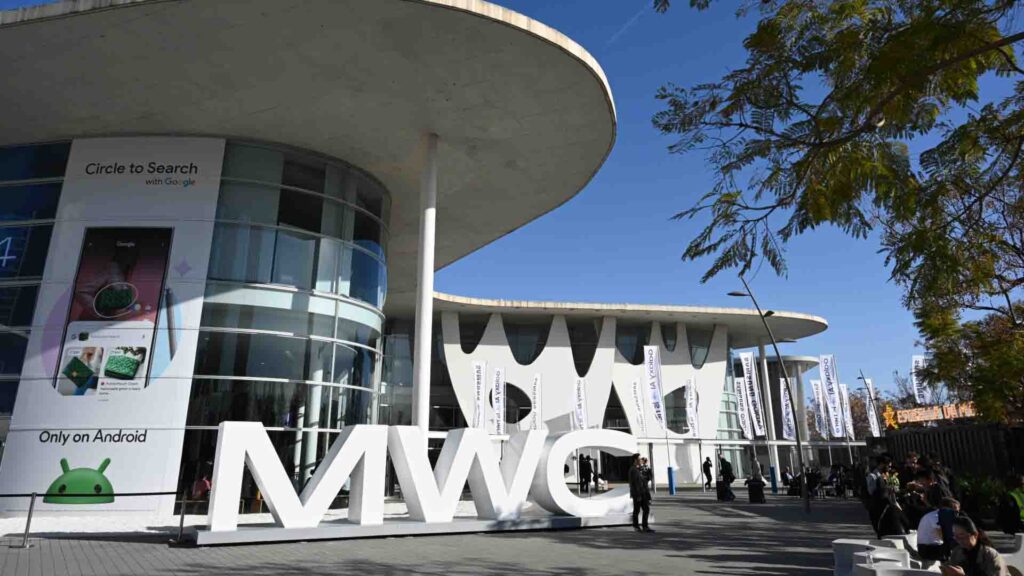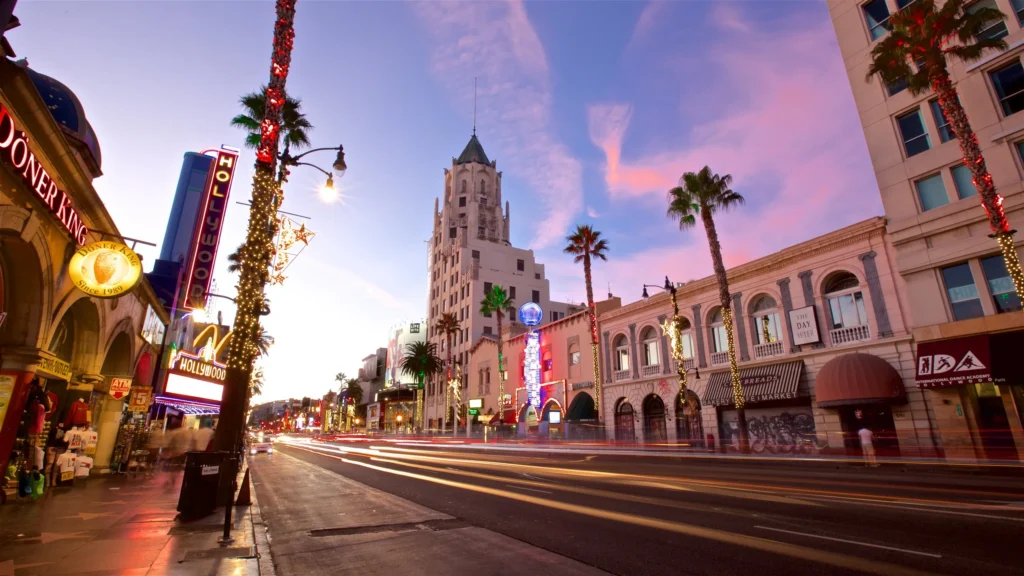Key Prerequisites for Effective Urban Diplomacy on a Global Scale
In the past decade, the role of cities in global politics has become increasingly prominent. International challenges such as climate change and the COVID-19 pandemic have had their most significant impacts in urban areas, transforming cities into key players on the global stage. Reports emphasize that cities must invest in resources, expertise, and capacity to manage their international relations and responsibilities. However, in practice, many municipalities lack the necessary infrastructure (such as specialized training and adequate budgets) to expand urban diplomacy. At the same time, there is a growing commitment to global agendas, such as the Sustainable Development Goals (SDGs).
International Relations of Cities
- Sister-City Relationships and Bilateral Cooperation: Sister-city programs are among the most common tools of urban diplomacy. Many major cities worldwide pursue cultural, economic, and environmental exchanges through sister-city agreements. According to a survey, approximately 90% of cities participate in sister-city programs, organizing joint economic or cultural exchanges. For example, Berlin (population 3.4 million) has 17 sister cities globally and allocates around €1 million annually to its urban diplomacy office. Such bilateral collaborations facilitate the transfer of experiences and joint projects.
- Global City Networks: Many municipalities join coalitions and international city networks. For instance, the C40 network includes about 97 leading cities worldwide addressing the climate crisis, while UCLG (United Cities and Local Governments) is a global organization representing cities’ interests in international forums. Member cities share experiences and policies on common issues such as climate change, sustainable development, or urban infrastructure. For example, Los Angeles is a member of coalitions like Cities Alliance and the Global Covenant of Mayors, presenting its successful strategies at international summits.
- Cultural, Economic, and Environmental Exchanges: Urban diplomacy often focuses on multiple dimensions, including economics, culture, and the environment. Economically, cities leverage international relations to attract foreign investment, develop tourism, and expand foreign trade. Reports indicate that cities like Los Angeles and New York extensively use global networks for business development and foreign investment. Culturally, hosting joint artistic and educational events, participating in international exhibitions, and exchanging tourists strengthen ties. Environmentally, cities join agreements like the Global Covenant of Mayors or the ICLEI network to pursue joint climate projects, such as clean energy adoption and local crisis management.
- Cities’ Role in Foreign Policy: As paradiplomatic actors, cities can participate in formal national foreign policy channels. Urban diplomacy, defined as a form of subnational diplomacy, addresses citizens’ interests and security while enhancing national identity through interactions with other global-local actors. In this regard, urban diplomacy not only advances local interests but can also improve a country’s international image. However, coordination with central government foreign policy is essential; experts argue that urban diplomacy should not operate independently of official state diplomacy but rather complement it. Many mayors have recognized that achieving urban goals requires an active international presence. For instance, the Mayor of Bristol noted, “When I was elected, I didn’t intend to engage much internationally, but I realized that achieving urban goals is impossible without an international presence.”

Urban Domestic Policy
- Engagement with National Governments and Legal Frameworks: Coordination between municipalities and central governments is critical for effective urban diplomacy. Cities must operate within national legal frameworks and align their international activities with broader national policies. Tokyo’s urban diplomacy strategy document emphasizes collaboration with the central government, stating that urban diplomacy should strengthen national objectives. Studies also indicate that positive relations with the national government and political support from city leaders are among the most critical factors for successful urban diplomacy. Thus, establishing legal and institutional prerequisites (such as municipal authority to sign international agreements or coordination with foreign ministries) is essential.
- Executive Structures and Institutions: Municipalities typically establish dedicated units or offices to manage international activities. These entities are responsible for tasks such as managing sister-city relationships, participating in global networks, engaging with foreign diplomatic and consular representations, organizing events and international days, promoting the city abroad, and coordinating the mayor’s official trips. Such organizational structures enable municipalities to systematically pursue their international activities. For example, in some German and British metropolises, international offices employ 5 to 15 specialized staff and have annual budgets of hundreds of thousands of euros.
- Human Resources and Capacities: Developing the skills and expertise of urban staff in international relations is crucial. Research indicates that fewer than half of the staff involved in cities’ international activities are adequately trained. The lack of specialized training, experience, and coordinated educational programs is a significant barrier. To address this, specialized courses and skill-building workshops (e.g., urban diplomacy schools or international city management programs) are recommended. For instance, Melbourne’s Urban Diplomacy School and the Global Mayors Forum (GMF) working groups are examples of initiatives that enhance cross-city learning and strengthen local staff capabilities.
- Financial Resources: Allocating sufficient budgets for urban diplomacy is another prerequisite. Municipalities require funding to participate in international summits and conferences, host or dispatch foreign delegations, and finance joint cooperation projects. Studies identify insufficient budgets and resources as one of the top three barriers to urban diplomacy. Therefore, urban budgets must include specific allocations for international programs.
- Civil Society Engagement: Citizen support and participation in urban diplomacy not only enhance legitimacy but also provide valuable human resources. Cities that involve their immigrant and ethnic minority communities in international programs build stronger global brands. For example, many metropolises connect with social networks and various civil society organizations, enhancing internal cohesion and external influence by empowering these communities through training, capacity-building, and participatory opportunities.
- Digital and Communication Infrastructure: In today’s world, robust communication infrastructure (high-speed internet, data centers, information systems, and smart city tools) is essential for effective diplomacy. Smart cities, leveraging technologies like the Internet of Things, artificial intelligence, and data analytics systems, improve urban services and accelerate innovation through technology and experience exchanges with other cities. Moreover, branding a city as “smart” can attract international investors and professionals. For example, Barcelona, by positioning itself as a hub for technology and innovation, has attracted major foreign companies and strengthened its tourism economy.

Successful Global Experiences
- Barcelona (Spain): By investing in smart city projects and creating an innovative brand, Barcelona has become known as the host of technology conferences like the Mobile World Congress (MWC). Its smart urban diplomacy has attracted international investment and boosted tourism.

Mobile World Congress (MWC) in Barcelona
- Singapore and Zurich: Both cities, through comprehensive Smart Nation initiatives and advanced digital infrastructure, have succeeded in attracting foreign investment and developing technology industries, enhancing their global image and economic growth.
- Los Angeles and New York (United States): Los Angeles is an active member of international city networks like the Global Covenant of Mayors and Cities Alliance, advancing its climate and sustainable development goals through events like the 2028 Olympics. New York, as the host of the United Nations, has over 30 foreign consulates and maintains a strong presence in global summits through its well-organized international office.

Los Angeles
- Tokyo (Japan): Tokyo’s urban diplomacy revolves around three main goals: successfully hosting the 2020 Olympics, addressing shared metropolitan challenges, and establishing Tokyo as a global city. Its urban diplomacy strategy emphasizes close cooperation with the central government to serve both national objectives and the interests of Tokyo’s residents.
